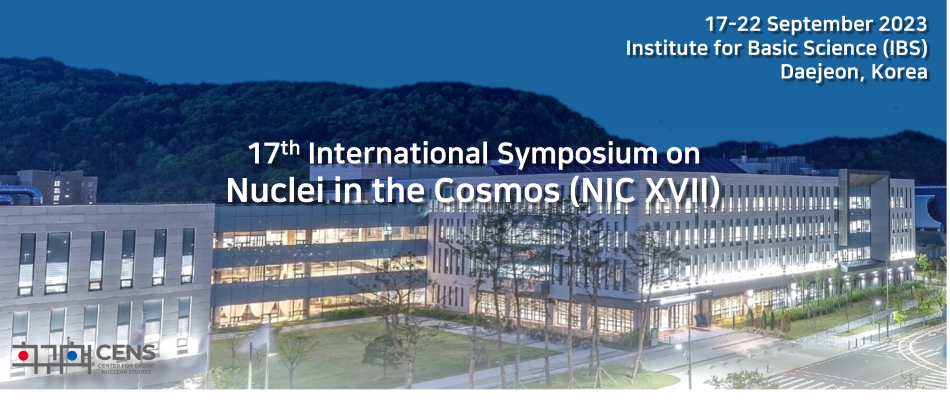Speaker
Description
A huge number of neutrinos emitted in a supernova explosion interact with a dense plasma. The interaction between neutrinos and electrons remarkably changes the neutrino oscillation probability at the specific electron density, known as the Mikheyev–Smirnov–Wolfenstein (MSW) resonance effect. Previous studies for the neutrino-process in core-collapsing supernova have well-established the effects of neutrino interactions with electrons and neutrino itself on the neutrino process. However, observations on magnetar surfaces imply that a strong magnetic field might exist in supernova environments. It turns out that such a strong or stronger magnetic field can polarize the electrons, whose effective potential, including axial-vector interaction, changes the MSW effect region or the effect of neutrino-neutrino interaction on neutrino oscillation. In this presentation, we show the effects of the strong magnetic field on neutrino oscillation, adopting a power law of electron number density and dipole magnetic field profiles. Also, we discuss those effects through the abundance of $^{92}$Nb, $^{98}$Tc, and $^{138}$La with the SN1987A model.

